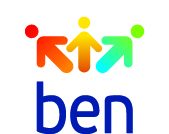Peter Gray, an independent Motivation Consultant, presents a regular Business Events News feature on current issues in the Conference and Incentive industries.
OF ALL the ‘business event’ categories, incentives remain the most misunderstood and, probably for this reason more than any other, least used. Yes, there are plenty of incentive programs being run annually, by car manufacturers, pharmaceutical companies, printer manufacturers and so on, but statistics suggest that of all the companies that could use incentives as part of their marketing strategies, less than 50% actually do so.
And yet an incentive program, if properly designed and implemented, is very effective, probably the most effective of all marketing strategies.
When the word ‘incentives’ is mentioned many people think of the rewards rather than what can be a complex program structure specifically designed for a predetermined purpose.
And circumstances can often draw the public ire if these rewards are perceived as ‘extravagant’ in their eyes. When HIH went belly-up in 2001, a group of its advisers were on an incentive reward trip to some exotic destination. The company was pilloried because of this and yet these people had met targets which had contributed to the company’s income and had, in fact, lessened the ultimate debt.
But travel is only one of the rewards on offer and, statistics suggest, comprise only about 46% of all rewards available to incentive program participants; merchandise, lifestyle and experiential rewards make up the majority.
Anyone who has ever set themselves a goal will realise that simply having the desire to achieve something is not enough.
There are three important components to motivation. These are activation, persistence and intensity. The first is the decision to initiate a behaviour (often in incentive programs this is enrolment in the program). The second is the continued effort towards the goal which often throws up obstacles like the need to achieve KPIs or other results. Finally, intensity is the effort which has to be expended to achieve or exceed the goal.
There are many forms of incentive programs and an incentive practitioner can explain them to you and advise on the best one for your business. Depending upon what you want to achieve, incentive programs should be cost-neutral at worst but are generally very profitable as well as effective.
Peter Gray can be contacted at peter.gray@motivatingpeople.net.



